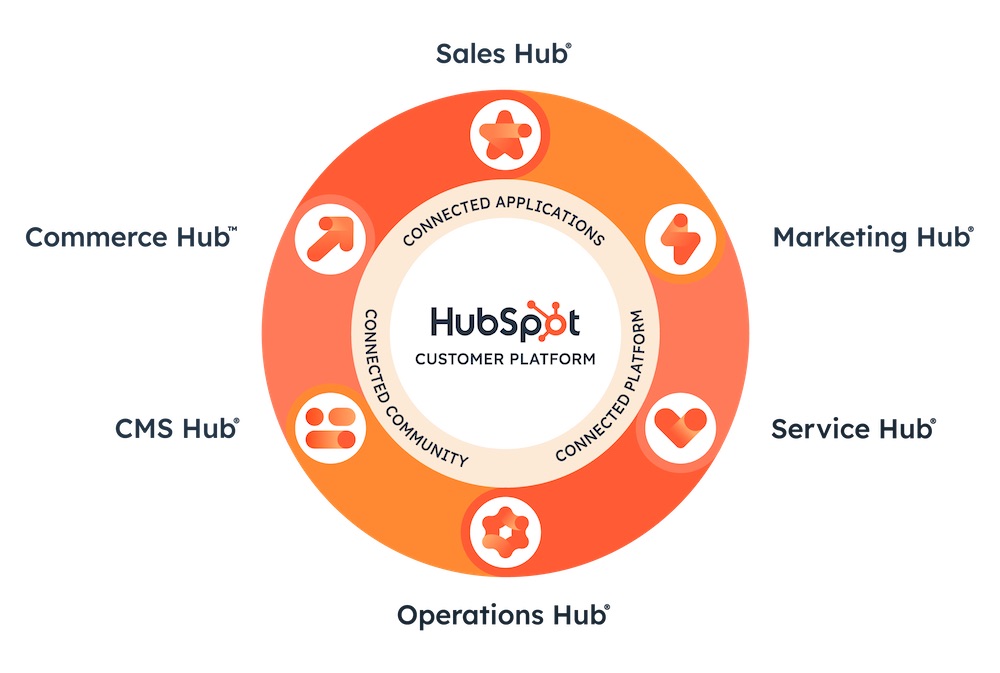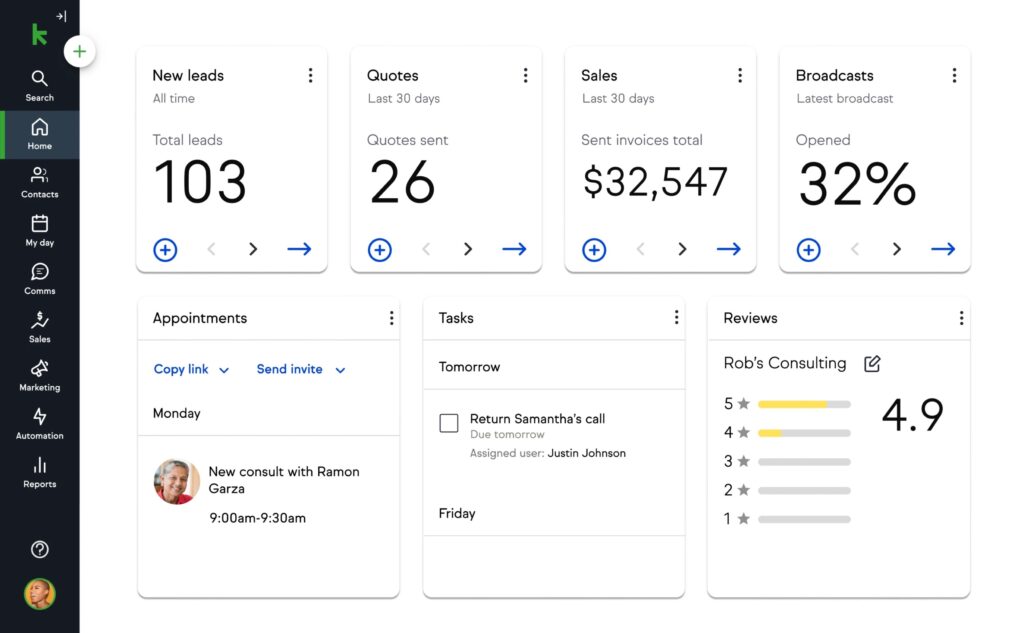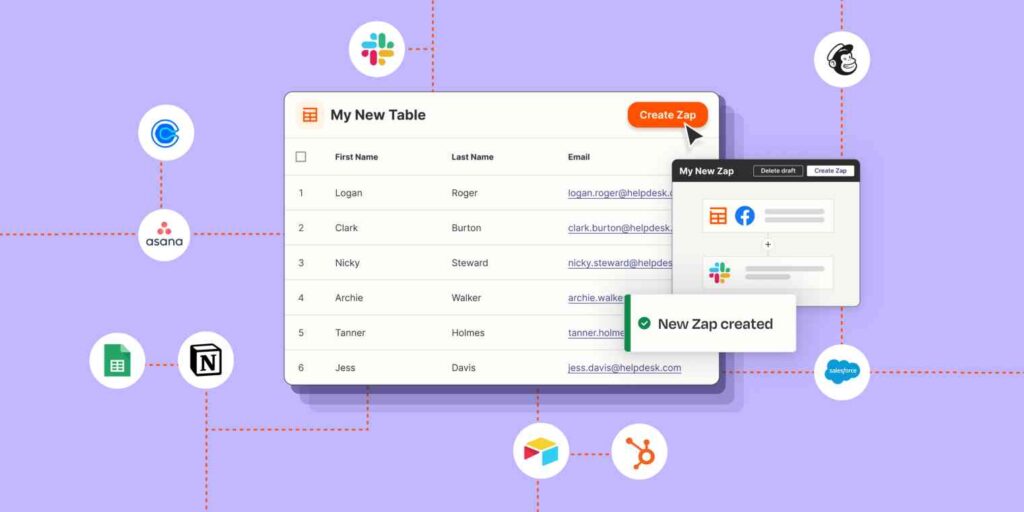In today’s digital age, software as a service (SaaS) has revolutionized the way businesses operate. SaaS companies offer subscription-based services that allow businesses to access software applications over the Internet, eliminating the need for costly and time-consuming installations. With the rise of SaaS, many businesses have witnessed tremendous success, transforming industries and becoming leaders in their respective markets. In this blog, we will explore real-world examples of SaaS success stories, highlighting the impact of SaaS on business operations, customer experience, and overall success. Whether you are a small business owner or an entrepreneur looking to enter the SaaS market, these success stories will inspire and provide valuable insights into the potential of SaaS. Let’s dive in and discover the secrets behind their achievements.
Understanding SaaS and Its Impact
To know about SaaS success stories, we must understand SaaS and its benefits. SaaS is a business model where users can access software apps through subscriptions. This saves money as there’s no need to buy expensive hardware. The internet enables remote access to software rather than installation. Additionally, this makes it more affordable and scalable. SaaS helps with customer support and streamlining centralized platforms in business operations, ensuring efficiency. Let’s explore these in more detail.
The Demand for SaaS Solutions
The demand for SaaS solutions has been on the rise, particularly among small businesses. SaaS products offer flexibility, affordability, and ease of use, making them an ideal choice for businesses of all sizes. Small businesses, in particular, have embraced SaaS products, as they provide access to software applications that were previously only available to large enterprises. This has leveled the playing field, allowing small businesses to compete on a global scale. Additionally, SaaS companies have gained trust and brand awareness, as customers recognize the scalability and convenience of subscription-based services.
Monthly revenue from SaaS products has seen exponential growth, as businesses opt for subscription models that offer cost savings and continuous software updates. Moreover, this shift to subscription-based services has allowed SaaS companies to scale quickly, expand their customer base, and invest in innovation.
Companies that manage subscriptions well use SaaS metrics to measure and improve their performance. Metrics like monthly revenue, customer churn rate, and acquisition cost help to monitor growth. These metrics provide valuable insights into customer behavior, allowing companies to make data-driven decisions and improve their product offerings. Additionally, SaaS labs are continuously innovating best practices for success, providing guidance and support to SaaS companies in their growth journey.
Here’s an article on Trust in E-commerce: Key to Success in Online Business, check it out!
How SaaS is Changing Business Operations
SaaS solutions have transformed various aspects of business operations, revolutionizing customer support, centralizing data teams, and reshaping customer experience. One of the key success stories of SaaS companies lies in their ability to provide exceptional customer support. By offering real-time assistance, self-service options, and personalized experiences, SaaS companies have enhanced customer satisfaction and loyalty.
Case studies of successful SaaS products showcase the positive impact they have had on businesses across industries. From streamlining project management to automating workflows, SaaS platforms have enabled businesses to operate more efficiently, saving time and resources. The central platform lets teams work together easily. Further, they can get data and info in one spot. This leads to better decision-making. The result is a business success overall.
The SaaS business model itself is reshaping customer experience. With subscription-based services, customers have the flexibility to try different software products and switch providers if they are not satisfied. This dynamic has forced SaaS companies to focus on continuously improving their offerings, driving innovation, and ensuring customer satisfaction. SaaS companies are growing fast. They’re helping businesses improve their operations and be successful. Additionally, this is changing how businesses find partners for working together.
Furthermore, check out an article on the Comprehensive Guide to Building Marketplace.
Real-World SaaS Success Stories
Let’s explore some SaaS success stories. These companies have made waves in various industries by transforming businesses and setting new records. Their achievements showcase how SaaS has helped with customer relationships, video meetings, marketing, communication, e-commerce, software development, and more. Let’s explore these success stories in detail to gain insights into their strategies, challenges, and lessons learned.
Salesforce
Salesforce, a customer relationship management (CRM) platform, is a prime example of a SaaS success story. With annual revenue exceeding $17 billion, Salesforce has become a market leader in the CRM space.

In addition, here are some key aspects of Salesforce’s success:
- Salesforce’s centralized platform has transformed customer relationship management, allowing businesses to consolidate customer data, automate processes, and enhance customer experience.
- Salesforce success stories show how SaaS metrics- happy customers, staying customers, and more money- lead to success.
- Salesforce offers various software products like Sales Cloud, Service Cloud, and Marketing Cloud. These tools help businesses simplify sales, support, and marketing operations.
- The company’s commitment to continuous innovation, customer success, and trust chain has contributed to its rapid growth and brand awareness.
- Salesforce has many success stories from businesses that gained growth and great customer feedback. These are case studies of how the CRM platform helped them.
Zoom
Zoom, a video meetings platform, has experienced rapid growth and success, particularly in recent years.

Hence, here’s what sets Zoom apart:
- Video conferencing is becoming more important for people and businesses to communicate and work together. Zoom’s success stories show that it has great potential in this area.
- The user experience on Zoom is intuitive, seamless, and user-friendly, leading to positive word-of-mouth and customer satisfaction.
- Zoom has real examples of success stories that reflect its positive influence on customer feedback. It helps businesses to better communicate internally and externally.
- Zoom is a popular app that makes a lot of money. It uses a SaaS business model. This means it offers different plans for people to subscribe to. The plans are made to fit different user needs.
- Zoom’s success is due to SaaS metrics. These include user growth, customer satisfaction, and revenue growth.
HubSpot
HubSpot, a leading provider of marketing, sales, and customer support software, has established itself as a go-to platform for businesses looking to drive success through inbound marketing.

Furthermore, here’s what makes HubSpot successful:
- HubSpot’s success stories show the power of content marketing. Businesses use HubSpot’s platform to make, share, and measure their content marketing impact.
- HubSpot is a company that values feedback from its customers. This feedback helps the company to improve its products continuously. The company listens to what customers say, including their insights and needs. This approach has contributed to HubSpot’s success.
- HubSpot is successful because businesses trust their platform. The platform helps with marketing, sales, and customer support operations.
- HubSpot’s success stories showcase how companies can achieve brand awareness and customer satisfaction with effective inbound marketing strategies. These case studies offer real-world examples of SaaS success worldwide.
- HubSpot is a popular tool for digital marketing. It has helped many businesses grow. HubSpot has easy-to-use products and gets good feedback from users. Businesses should consider using HubSpot to help with their growth.
An article about Marketplace Personalization with Machine Learning Made Easy might interest you.
Slack
Slack, a team communication platform, has witnessed rapid growth and success, transforming the way teams collaborate and communicate.

Additionally, here’s why Slack stands out:
- Slack is doing well because of its SaaS business model. Companies use them to communicate better.
- User experience has been key to Slack’s real-world success stories, as the platform offers intuitive features, integrations, and customization options.
- Slack grew fast by using social media to promote its brand and reach many people.
- Real-life success stories of businesses using Slack highlight its positive impact on team productivity, collaboration, and overall business success.
- Slack’s successful stories show businesses trust their platform. This makes Slack a valuable tool for team communication.
Shopify
Shopify, an e-commerce platform, has revolutionized online businesses, making it easier for entrepreneurs to start, run, and grow their online stores.

Moreover, here’s what makes Shopify successful:
- Shopify has numerous SaaS success stories that display the benefits of its app model. It enables businesses to create and personalize online stores without technical skills.
- Shopify has helped businesses get access to 24/7 customer support. They offer online resources and a supportive community of merchants. The real-life success stories have been the reason for this change in customer support.
- The success of Shopify’s SaaS product development is evident in its rapid growth and monthly revenue, which surpassed $1 billion in 2020.
- Shopify’s business model has opened doors for small businesses, empowering them to compete with larger companies in the e-commerce space.
- Positive feedback from Shopify’s success stories indicates high levels of customer satisfaction, trust chain, and business growth.
Github
Github, a software development platform, has transformed the way software developers collaborate, share code, and build software.

Further, here’s what makes GitHub successful:
- Github’s rapid growth is evidence of the success of its SaaS business model, enabling developers to collaborate on open-source projects and work efficiently.
- Github’s success stories showcase its significant impact on software development, as businesses of all sizes utilize its platform for version control, code management, and collaboration.
- The success of Github’s SaaS platform is evident in its adoption by large companies, including Microsoft, which acquired Github in 2018.
- Github’s success stories indicate the potential for monthly revenue growth, as businesses increasingly rely on its platform for their software development needs.
- Positive feedback from Github’s success stories highlights the trust chain, as developers trust Github to store and manage their code repositories securely.
Adobe
Adobe, a leader in digital marketing and content creation, has achieved remarkable success through its suite of software products.

In addition, here’s what sets Adobe apart:
- Adobe’s success story is a testament to the impact of user experience, as businesses and creative professionals rely on its software products for content creation, design, and marketing.
- Their significant growth is fueled by rapid customer satisfaction, trust chain, and ongoing innovation in digital marketing tools.
- Adobe’s subscription management company model has yielded huge growth potential, offering businesses access to a wide range of software products through flexible subscription plans.
- Adobe’s brand awareness and customer support have made a significant impact, as businesses trust Adobe to support their marketing, design, and content creation efforts.
- The monthly revenue of Adobe reflects the success of its SaaS business model, demonstrating the ongoing value and demand for its software products.
Linktree
Linktree, a social media SaaS platform, has garnered significant success by solving a common problem for businesses and influencers.

Accordingly, here’s why Linktree stands out:
- The SaaS business model of Linktree has led to rapid growth and large companies trust them to optimize their social media profiles.
- Linktree has created brand awareness through social media marketing best practices, leveraging social media platforms to reach a wide audience.
- Linktree’s customer feedback loop has fueled its success stories, as businesses appreciate the ease of use, customization, and analytics provided by the platform.
- Their SaaS metrics reveal positive feedback, customer satisfaction, and trust chain, making Linktree an essential tool for businesses looking to optimize their social media presence.
- The success of Linktree’s SaaS app is built on real-life success stories, as businesses use Linktree’s platform to drive traffic, increase user engagement, and enhance the user experience.
Ziflow
Ziflow, a project management SaaS platform, has simplified the feedback process for marketing teams, enabling efficient collaboration and streamlined workflows.

In summary, here’s why Ziflow is successful:
- Ziflow’s SaaS business model is based on customer satisfaction, trust chain, and user experience, offering businesses a centralized platform for project management and feedback.
- Their SaaS platform has garnered positive feedback, trust chain, and user experience, improving collaboration and simplifying the feedback process for marketing teams.
- Ziflow’s customer support contributes to their huge potential, rapid growth, and real-life success stories, as businesses rely on their platform to streamline their marketing operations.
- Ziflow has become an integral part of marketing teams, contributing to significant impact, trust chain, and success stories of businesses across industries.
- Their monthly revenue and real-life success stories are a testament to the impact of their SaaS platform on project management, feedback process, and overall business success.
Keap
Keap, an email marketing and SMS marketing platform, has empowered small businesses to grow their customer base and drive success through digital marketing.

What’s more, here are few points on why Keap is successful:
- Keap’s SaaS business model and user experience are driving significant impact, as businesses rely on their platform for email marketing, SMS marketing, and customer relationship management (CRM).
- Further, SaaS metrics, such as customer satisfaction, user growth, and revenue growth, have led to rapid growth, real-life success stories, and a trust chain.
- Keap’s positive feedback loop, word-of-mouth marketing, and customer support have contributed to their success stories, as businesses appreciate the value of their platform in reaching and engaging customers.
- The SaaS app’s success is attributed to content marketing and social media marketing, as businesses leverage Keap’s platform to automate their marketing efforts.
- The centralized platform model of Keap has led to significant impact, trust chain, and success stories of businesses that have successfully implemented email marketing and SMS marketing strategies.
Zapier
Zapier, an automation platform that connects software applications, has transformed the way businesses integrate their tools and streamline workflows.

In addition, here’s what makes Zapier successful:
- Zapier’s user experience, customer support, and brand awareness are noteworthy, making it a go-to platform for businesses looking to automate their processes.
- The SaaS business model, real-life success stories, and trust chain are crucial to Zapier’s success, as businesses rely on its platform to connect and automate their software tools.
- Zapier has fostered positive feedback, significant impact, and rapid growth, propelling businesses toward success through seamless software integration.
- Their customer relationship management and customer feedback loop contribute to the success stories of businesses that have simplified their workflows and saved time using Zapier.
- Additionally, they have created brand awareness through best practices, content marketing, and customer support, positioning themselves as a trusted partner for businesses seeking software integration solutions.
Here’s an article on The Benefits and Risks of Offshore Software Development.
Factors Contributing to SaaS Success
The success of SaaS companies can be attributed to various factors, including best practices, customer support, SaaS metrics, trust chain, top operations teams, and subscription management companies. These factors play a crucial role in driving business growth, customer satisfaction, and overall success in the SaaS industry. In the following sections, let’s explore key strategies for SaaS success, as well as the challenges faced by successful SaaS companies.
Key Strategies for SaaS Success
In addition, to achieve success in the SaaS industry, companies must implement key strategies that focus on best practices, customer support, SaaS metrics, and trust chains. Here are some strategies that successful SaaS companies employ:
- Implementing top operations teams is crucial for SaaS success, as these teams ensure efficient operations, product development, and customer support.
- SaaS companies prioritize brand awareness, user experience, and best practices to differentiate themselves in the competitive SaaS market.
- Building positive feedback, customer relationship management, and trust chain is essential, as these elements contribute to customer satisfaction, loyalty, and word-of-mouth marketing.
- Leveraging SaaS metrics, such as customer acquisition cost, customer lifetime value, and monthly recurring revenue, helps companies measure and optimize their performance.
- Successful SaaS companies focus on rapid growth, significant impact, and real-life success stories, as these factors contribute to business growth, investor confidence, and customer trust.
- SaaS businesses that excel in content marketing, customer support, and social media marketing create a strong brand presence, attract new customers, and drive customer satisfaction.
Challenges Faced by Successful SaaS Companies
While successful SaaS companies have achieved significant growth and success, they also face unique challenges in the SaaS business landscape. Moreover, here are some challenges that SaaS companies must overcome:
- Scaling up while maintaining customer satisfaction and trust chain is a challenge for SaaS companies, as rapid growth can put a strain on resources and customer support.
- Managing rapid growth, monthly revenue, and customer feedback can be challenging, as companies need to balance growth objectives with customer satisfaction and product improvement.
- Balancing brand awareness, user experience, and SaaS metrics poses challenges, as companies must continuously innovate, adapt, and optimize their offerings.
- Overcoming challenges in customer support, SaaS business models, and real-life success stories require SaaS companies to invest in customer success teams, product development, and customer relationship management.
- Adapting to changes in social media marketing, best practices, and customer relationship management is crucial, as SaaS companies must stay ahead of market trends, customer expectations, and competitor strategies.
Lessons from SaaS Success Stories
Real-world SaaS success stories provide valuable lessons for businesses aspiring to achieve similar success. Furthermore, by analyzing the common traits of successful SaaS companies and learning from their mistakes, businesses can set themselves up for success in the SaaS industry. In the following sections, let’s explore the common traits of successful SaaS companies and the mistakes to avoid in the SaaS industry.
Common Traits of Successful SaaS Companies
Successful SaaS companies share common traits that contribute to their rapid growth, significant impact, and positive feedback. Additionally, here are some of these common traits:
- Rapid growth is a characteristic of successful SaaS companies, as they leverage their SaaS business model, user experience, and customer satisfaction to attract and retain customers.
- Significant impact on their respective industries is a result of SaaS companies delivering innovative solutions, best practices, and data-driven decision-making.
- Positive feedback, customer satisfaction, and real-life success stories are shared traits among successful SaaS companies, highlighting the value and impact of their products.
- SaaS metrics, such as monthly recurring revenue, customer acquisition cost, and customer lifetime value, are common denominators among successful SaaS companies, as they provide insights into business performance and growth potential.
- Social media marketing, customer relationship management, and SaaS business model are shared traits among successful SaaS companies, as they enable businesses to reach, engage, and delight their target audience.
Check out an article on Unlocking Opportunities: How Fintech Solutions Drive Financial Growth.
Mistakes to Avoid in the SaaS Industry
While there are many success stories in the SaaS industry, there are also common mistakes that businesses should avoid. Here are some mistakes to be aware of:
- Poor user experience can impact retention rates, user satisfaction, and brand reputation. SaaS companies should prioritize user-friendly interfaces, seamless workflows, and continuous product improvements.
- Overlooking customer feedback can hinder product improvement, customer satisfaction, and customer retention. SaaS companies must actively solicit feedback, listen to their customers, and incorporate their suggestions into product development.
- Scaling up rapidly without a scalable infrastructure can lead to customer dissatisfaction, performance issues, and operational inefficiencies. SaaS companies must plan for growth, invest in infrastructure, and prioritize scalability.
- Stale content can lead to user disengagement, decreased brand credibility, and reduced customer satisfaction. SaaS companies should regularly update their content, provide valuable insights, and keep their users engaged.
- Underestimating the importance of customer support can lead to poor customer experiences, customer churn, and negative word-of-mouth. SaaS companies should invest in customer support teams, establish support channels, and provide timely assistance to their customers.
Future of SaaS: Predictions and Possibilities
The future of SaaS is full of potential, with emerging trends shaping the SaaS industry. From fintech platforms to data scraping, SaaS labs are driving experimentation and innovation. Let’s explore the emerging trends in the SaaS industry and how new SaaS companies can achieve success in this dynamic landscape.
Emerging Trends in SaaS
The SaaS industry is witnessing emerging trends that will shape its future. Here are some of these trends:
- Fintech platforms are gaining significant traction in the SaaS market, as businesses seek to streamline financial operations, automate processes, and leverage data-driven insights.
- Data scraping tools and services are becoming increasingly popular in the SaaS industry, as businesses seek to extract, analyze, and utilize data for business growth, customer insights, and competitive advantage.
- SaaS labs are driving experimentation and innovation, providing SaaS companies with a platform to test new ideas, validate hypotheses, and optimize their products and services.
- The demand for SaaS metrics tools is on the rise, indicating a shift towards data-driven decision-making in the SaaS industry. These tools provide SaaS companies with actionable insights, benchmarks, and performance indicators to optimize their business strategies.
- The SaaS industry, particularly in San Francisco, is witnessing a surge of SaaS experts, incubators, and accelerators, creating a supportive ecosystem for new SaaS companies to thrive.
How Can New SaaS Companies Achieve Success?
New SaaS companies can achieve success by implementing digital marketing strategies, exploring innovative business ideas, and making a significant impact in their target market. Here are some strategies for success:
- If you want to boost brand awareness, customer acquisition, and user engagement, use digital marketing strategies. These include content marketing, social media marketing, and influencer marketing.
- Explore innovative business ideas that solve real-world problems, disrupt existing markets, and offer unique value propositions to customers.
- Focus on significant impact, such as driving revenue growth, improving operational efficiency, or addressing a pressing customer need. This will differentiate new SaaS companies in a crowded marketplace.
- Leverage SaaS metrics to measure and optimize business performance, customer satisfaction, and growth potential. This data-driven approach will enhance decision-making and guide new SaaS companies toward success.
- The SaaS industry offers huge potential for businesses looking to create their success stories. To grow and prosper, businesses should recognize the benefits of SaaS. It can improve customer satisfaction and brand awareness leading to overall business success.
Are You Ready to Create Your SaaS Success Story?
Entrepreneurs and business owners should consider SaaS to transform their businesses. Successful companies like Salesforce, Zoom, HubSpot, Slack, Shopify, Github, Adobe, and others prove that online businesses have huge potential in the SaaS industry.
By leveraging digital marketing strategies, exploring innovative business ideas, and embracing SaaS metrics, you can drive significant impact, attract loyal customers, and create your own SaaS success story. The SaaS industry offers a wide range of possibilities, from subscription management companies to fintech platforms, data scraping, and more.
Partnering with San Francisco SaaS experts like Cristina Vila or Jumper Media can help you grow and succeed in the SaaS industry. They offer valuable insights, support, and guidance. These experts have experience working with SaaS companies, implementing digital marketing strategies, and maximizing SaaS metrics for business growth.
Want to create a successful SaaS business? With the right mindset, ideas, and marketing strategies, you can achieve it. By doing so, you will drive customer satisfaction, increase brand awareness, and create a success story for your business.
Conclusion
In conclusion, these real-world SaaS success stories demonstrate the immense potential and impact of SaaS solutions in transforming business operations. The SaaS industry has successful companies like Salesforce, Zoom, HubSpot, and Slack. They achieved success by focusing on customer needs and using innovative strategies. Successful SaaS companies know what people want. They have a solid plan and work hard to make it happen. Despite challenges, they keep pushing forward and achieving success.
SaaS companies are growing, so new ones should learn. They must avoid mistakes and offer value to customers. To succeed, they should know emerging trends. It is important to use strategies that have previously worked.
Moreover, if you are ready to create your own SaaS success story, we are here to help. Get in touch with our experts to discuss how our SaaS solutions can contribute to your business growth and success.



